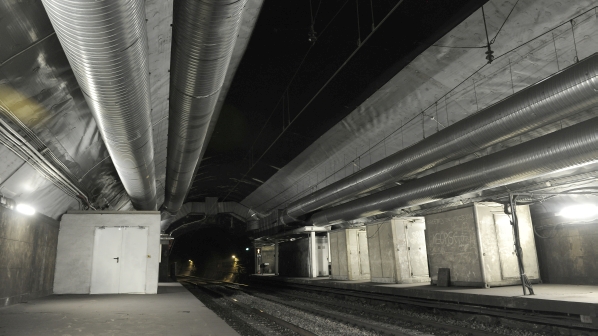Construction of the 7km tunnel linking Atocha and Chamartín stations began in 1933, but it only opened in 1967. The tunnel is now used by 470 trains and more of 200,000 passengers daily. While Adif has undertaken remedial works on the tunnel in recent years, 225 incidents were registered between 2014 and 2018, with around 28 trains affected each time and each event causing 316 minutes of delay on average.
Two contracts will be undertaken during the closure between June 2 and November, including one for the replacement of the ballast and wooden sleepers, the replacement of the existing flexible catenary with plate and rigid catenary, and a second for the modernisation of the signalling system.
In April, Adif awarded a joint venture between Azvi and Vías y Construccion a €24.1m contract to renew the track and catenary. The cost of materials, including track, rail, sleepers and anti-vibration mats, is expected to cost an additional €10.8m, while the materials for the catenary replacement will cost €1.1m. Adif has also tendered a contract worth €11.7m for the signalling.
Renfe Cercanías Madrid is due to launch an Alternative Transport Plan (PAT) to continue operation during the closure, with the Cercanías network expected to return to normal once the works are completed.
Adif says that following the works, services through the tunnel will be as comfortable as those through the adjacent Sol Tunnel, which opened in 2008.
The tunnel, which links intermediate stations Atocha and Chamartín, is used by Cercanías lines C-1, C-2, C-7, C-8 and C-10, as well as regional and intercity services.
For more information on rail tenders from around the world, subscribe to IRJ Pro.

